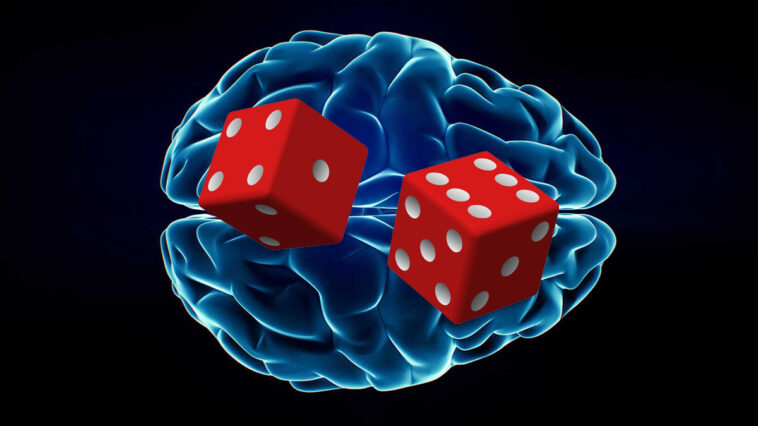Of all the recreational activities that humans participate in regularly, gambling falls into a unique category. It’s risky, addictive, and exciting, but for the vast majority of gamblers, it’s rarely profitable. So how has it become a multibillion-dollar industry?
The answer comes down to, as it often does, our psychological tendencies. In fact, the human brain hasn’t changed much over the past two thousand, and gambling is proof of that idea.
In this article, I’ll get into 4 interesting psychological concepts that can be observed when looking at gambling, and why our brains can’t get enough of the thrill.
1 – Risk Taking
To revisit the question posed in the opening section, why do so many people gamble even though they know they’re likely to be unsuccessful and ultimately lose money? The answer isn’t necessarily as simple as would be preferable, but rather involves several different factors. Most notably, risk-tendencies and reward delays.
First, it should be noted that often times these traits aren’t learned or developed – they’re simply inherent. It’s hard to accurately say how much of an individual’s inclination to gamble comes from birth, but most experts agree that it’s significant.
Another interesting aspect of risk-taking involves understanding the factors that can lead someone to be more willing to take risks. For example, scientists have discovered that simply being in a good mood can push many individuals toward more risky behavior. Even something as simple as being in the midst of several consecutive days of nice weather, or enjoying a favorite sports team’s win, have been proven to increase risk-taking.
2 – The Illusion of Control
When you go to the casino you might not have control over the results, but you obviously have some control over your plays, right? The psychology of gambling is such that we interpret the situation as having some type of control, even though this might not really be true.
For Example:
Think of the roulette wheel and the option players have to choose either red or black. You have the choice, so it feels like you have some control. Unfortunately, that really isn’t the case.
Regardless of whether you choose red or black, your chances of winning are going to be the exact same. A similar sentiment could be said about the option to raise or lower your bets based on how things are going. Yes, you can make these decisions, but they don’t necessarily lead to any additional success.
An interesting way to look at the illusion of control is to pose the question: even if you have control, why would anyone think that should lead to more success? The answer to this is simply, overconfidence. Most people believe that they have the knowledge and ability to be successful if given the opportunity. History would suggest that isn’t even close to being true.
3 – Near Misses
The concept of the “near miss” is a major factor in keeping gamblers around long after they should have walked away. This aspect of our psychology can be traced directly back to a point in the evolutionary process where it would have been very valuable to regard near misses with some optimism.
If you were living thousands of years ago, there’s a good chance you would have to hunt for your food. In that context, a near miss might mean you got close enough to take a good shot, but your arrow sailed slightly over the head of your intended target. Perhaps you even hit it, but it got away.
In the scenario above, your brain would tell you that,
“You’re this close to bringing home a big meal – you almost had it. It’s definitely worth pursuing the objective further, because you’ve proven that you can do it.”
Thus, you keep chasing down your prey, and with enough effort and luck, you’ll be eating good that night.
Now, as crazy as it sounds, your brain uses the same philosophy when you’re at the slot machine as it would have in an ancient hunting situation. Unfortunately, the evolutionary benefit does not cross over to the casino.
When you’re playing a slot machine, the game is programmed to give you as many near-misses as possible. Why? Because it’s a psychological trick that makes you think you’re *this* close to hitting the jackpot.
Whereas in the context of hunting a near miss truly does indicate that you’re getting close to accomplishing your goal, the same cannot be said for the slot machine. In fact, you’re no closer to hitting the jackpot after a near miss than you would be if you had no matching icons at all.
The reality of the “all or nothing” nature of gambling is difficult to grasp for most players. Regardless of how close you are to hitting that jackpot, blackjack, or crazy roulette bet, you don’t get anything for a near miss – not even the encouragement that you’re close to accomplishing your goal.
The bottom line is that the old axiom of, “Close only counts in horseshoes and hand grenades,” seems to apply to gambling.
4 – The Gambler’s Fallacy
It’s impossible to write an article about the psychology of gambling and not mention one of the most famous logical fallacies in existence – the Gambler’s Fallacy.
To put it as succinctly as possible, the Gambler’s Fallacy is the false belief that past trials have some type of impact on future trials. If that doesn’t clarify the concept, here’s an example:
Say you have a coin, and your goal is to predict whether it will come up heads or tails if you flip it. You’re instructed to repeat the exercise 10 times consecutively. If the first three come up as heads, there’s a good chance that you’ll lean heavily toward choosing tails on the fourth toss.
Because you know that the chance of the coin coming up heads or tails is 50/50, it seems like after three times coming up tails, the coin is statistically “due” to be heads the next time around. Unfortunately, that isn’t really the case.
You could flip said coin 100 times, 1,000 times, or 1,000,000 times, and the chance that it will come up heads is always going to be 50/50. Even if you’ve flipped 99 straight “tails,” the chance that the hundredth flip will be tails is still only 50/50.
Now I’ll put the idea in the context of gambling. Roulette is where I most often see the Gambler’s Fallacy appear, so I’ll use that one as the example.
If you’re playing real money roulette and simply playing your money on red or black, you might start to take notice of when the same color comes up several times in a row. You might even move your money back and forth based on what sequence has come up recently. If there have been four “blacks” in a row, there’s a good chance you’re going to switch over your money to “red” – it’s only logical, right?
It does make sense on the surface – red and black should, statistically, show up roughly 50% of the time each (I understand it’s not exactly 50%, but for the sake of the exercise it’s close enough). However, if you think about it on a deeper level, it’s easy to see where that thought process falls apart.
The bottom line is that it’s necessary to recognize that each trial (coin flip, roulette spin, etc.) exists independently of any prior trial. The idea that the end result will be 50/50 requires infinite spins, flips, etc. to be reliable.
The last coin flip has no impact on the next one, the last roulette spin result has no impact on the next one. This information doesn’t necessarily help you make better decisions, but it should prevent you from putting all your money on red simply because it’s landed on black five times previously.
Conclusion
Gambling is a fascinating concept when looked at through the eyes of psychology. Make no mistake about it – the casino is well-versed in all of the ideas explained in this article, and they use them to manipulate your decision making.
This knowledge might not make you more successful, but it can help put the entire thing in context. Also, it’s a not-so-subtle reminder that above all, plain old dumb luck, is what will most likely determine whether your win or lose money.
Michael Stevens
Michael Stevens has been researching and writing topics involving the gambling industry for well over a decade now and is considered an expert on all things casino and sports betting. Michael has been writing for GamblingSites.org since early 2016. …





